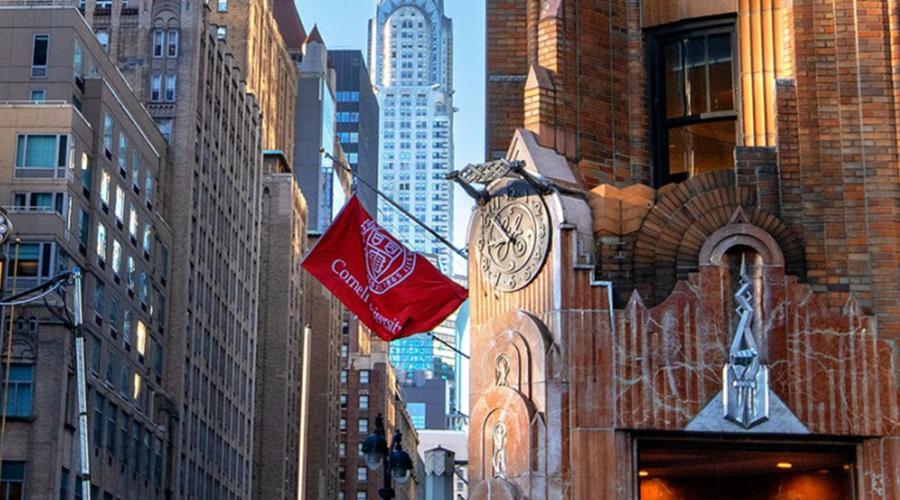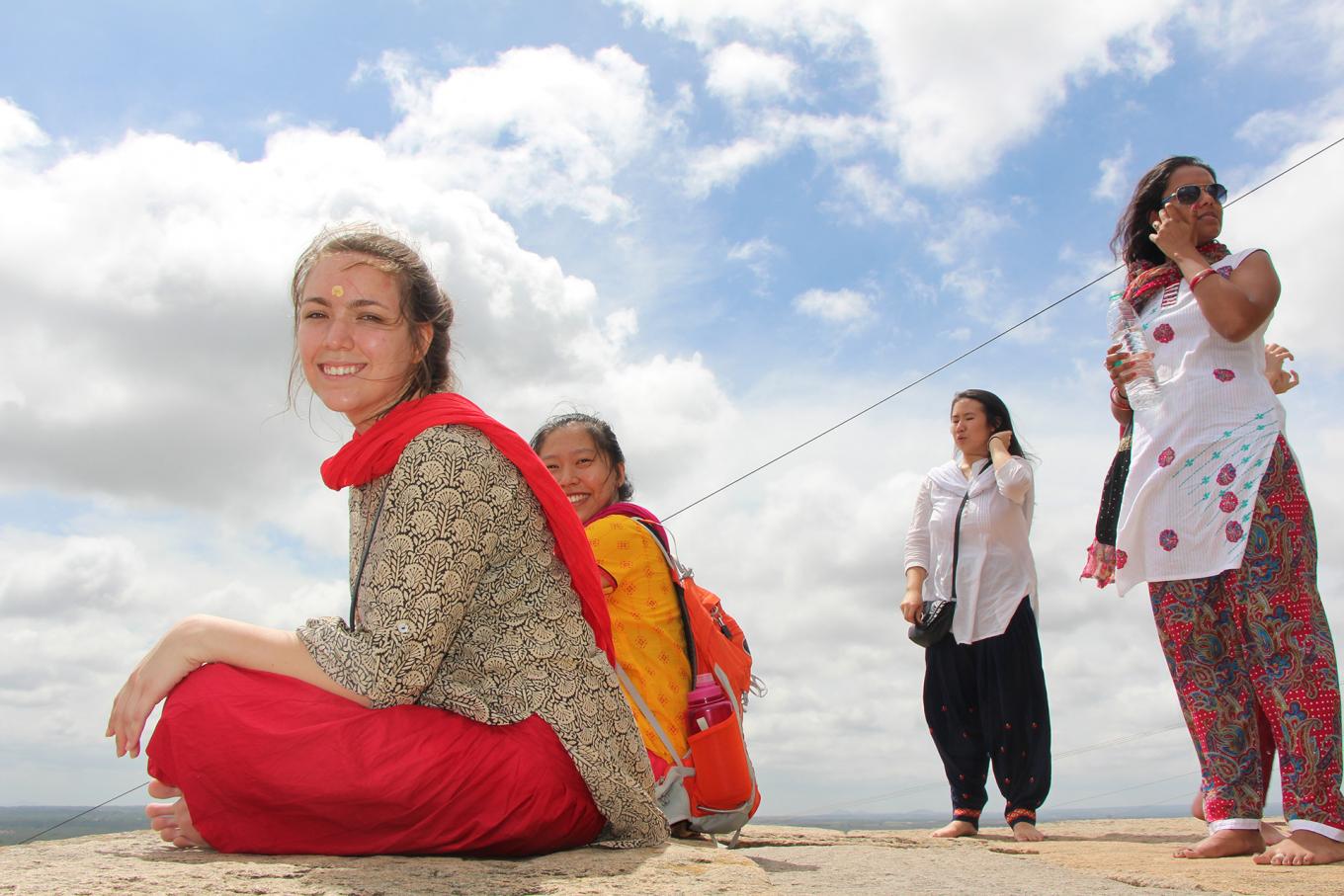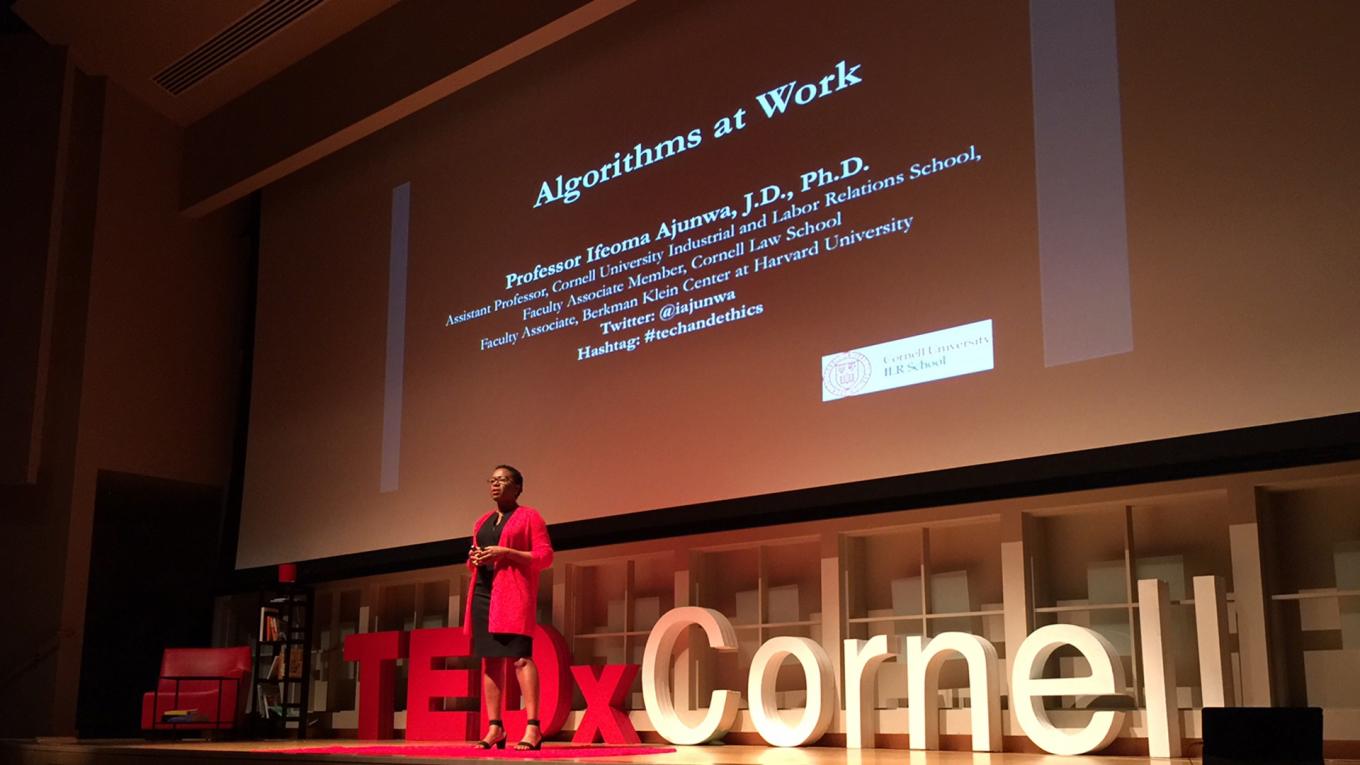
It takes work to make an impact
Since the founding of Cornell’s School of Industrial and Labor Relations, we’ve been at the nexus of innovation and progress in the working world. Today, ILR tackles workplace challenges to empower workers, employers and policymakers. Our community of staff, faculty and alumni forms a bond that starts the day they arrive, and stays with them throughout their lives and careers.
ILRies lead and embrace the tension between labor and management. We are home to more than 100 professors and outreach practitioners, 1,000 current students and 13,000 alumni whose expertise and leadership influence policymakers, unions, corporations, non-profits and many other organizations.
ILR experts explain the gig economy to federal policymakers, explore labor unrest in China and train nannies to negotiate with employers. They teach teenagers with disabilities how to get jobs. They teach people with criminal records how to become employed again and they inspire undergraduates to pursue careers that cross worker rights, law, human resources, finance and health care. Through research, ILR experts discover and share facts to explain workplace issues affecting millions.
ILRies’ Work Changes the World

Engagement and impact start when students arrive at ILR. Many travel to India, Nicaragua and Zambia through ILR Global Service Learning to take part in service projects and research that use their skills in dispute resolution, human resource management, disability studies, labor policy and other areas.
Assistant Professor Ifeoma Ajunwa researches how employers use algorithms to systematically reject women, people of color and over-40 workers from job opportunities. It helps inform the work of people like Adam Klein ’87, a partner in Outten Golden, which handles some of the nation’s highest profile workplace discrimination cases. “Professor Ajunwa is sounding an alarm on a very troubling development in the workplace,” he said.

Mandatory arbitration research by ILR Dean Alex Colvin, Ph.D. '99, revealed that more than 60 million American workers must submit to procedures barring them from pursuing court claims against their employers. His work has impacted policy and legislation at the highest levels and was cited in U.S. Supreme Court arguments around forced arbitration. Justice Ruth Bader Ginsburg, in her dissent to the court’s 5-4 decision, also noted Colvin’s work.
ILR’s Worker Institute leads efforts to create jobs designed to address climate change. Executive Director Lara Skinner launched a labor coalition that drew the attention of New York’s Gov. Cuomo on the value of a clean energy economy for the Empire State. As of posting, The Worker Institute is currently leading a delegation of 15 New York labor leaders in Denmark to learn about the offshore wind industry.
As one of the world’s most influential social scientists, Francine Blau, ILR’s Frances Perkins Professor of Industrial and Labor Relations, uses her research to reveal gender-based pay patterns that help economists, policymakers and the public understand labor-market inequality.
Our alums carry the ILR ethos into their careers, where they impact thousands of people. Christy Pambianchi ’90, senior vice president, human resources for Corning Incorporated, has helped Corning achieve 100 percent gender pay equity.
Whether it is through faculty research and teaching, the outstanding achievements of our many alumni, the dedication of our staff or the extracurricular efforts of our talented and motivated students, we at the ILR School change the world.